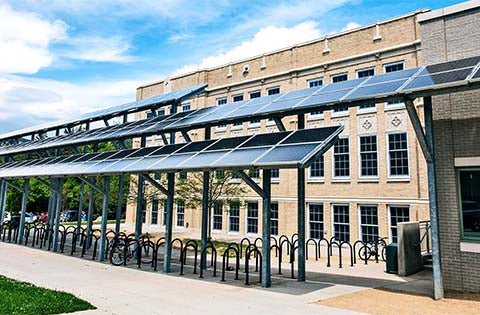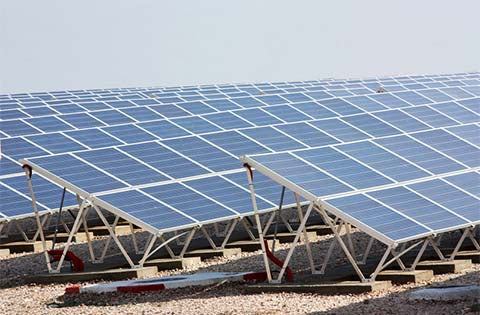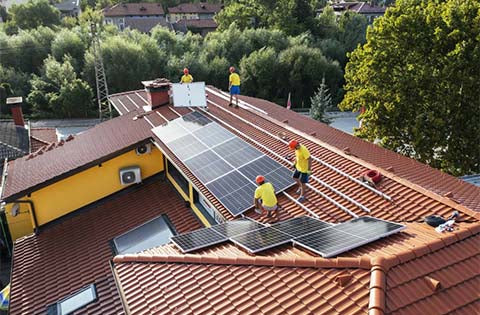By the end of the year 2022, more and more businesses and homeowners have switched to solar and started their clean and independent energy journey. Particularly, the benefits of solar panels for businesses are numerous, including significantly lower utility costs and the ability to use sustainable energy for a cleaner environment. But how would a company interested in solar panels on their commercial building get started? In this article, we`ll discuss the electrical infrastructure a building needs to accommodate solar panels and any additional regulations a business needs to follow when designing a commercial solar project.
Commercial electrical infrastructure compatibility for solar panels
When looking to install solar panels for commercial buildings, it is important to match the solar PV system with the electrical infrastructure of the building. We’ll walk through the main electrical requirements below that you’ll need to know when planning your commercial solar PV system.
Match Voltage Levels and Types: When installing a solar PV system, make sure that the type of solar panels is the same. If you are trying to mix in new solar panels with a current PV system and the panels are not the same type, be sure that the parameters such as wattage, voltage, amps, etc. are the same to still allow for compatibility between the panels. Additionally, it is important that the building’s current electrical panels can handle the voltage levels of the solar panels that are being installed.
Determine Electrical Distribution: It is important to match electrical panels with the correct type of solar PV system for optimum efficiency. Electrical panels generally come in switchgear panels or distribution panels. The main difference between these two panels is the voltage that they are designed to handle. Switchboards typically can handle voltages less than 600 volts, while switchgear electrical panels can handle higher voltages up to 350kV. When looking to install solar panels for commercial buildings, be sure to have installers look at the electrical panels of your building to determine the best solar PV system that will be compatible with the commercial electrical infrastructure.
Coordinate With A Facility Generator: If there is a facility generator attached to your building, it is important that the solar panels and generator are electrically isolated at all times. If solar panels and generators are on the same electrical grid, solar panels will try to send power to the generator, almost as if it were a battery. However, generators can’t handle this type of back feed and will break if attached to the same electric grid. To avoid this, make sure your solar installers are aware of any facility generators before installing.
Determine Method of Interconnection: There are two different ways to connect solar panels to an industrial building, line-side tap connection and load-side tap connection. A line-side tap connection consists of connecting solar panels on the utility side of a building’s primary electrical panel/switchboard. Equipment replacement may be needed for line-side tap connection since utilities generally have strict rules for interconnection. On the other hand, load-side tap connection is generally less disruptive. With load-side connection, wires are connected directly to existing wires between the load side of the electrical panel and the main breaker. Be sure to talk with an electrician when deciding between load-side and line-side connections to determine the best option for your building.
Get Started with SOLARPARTS
SOLARPARTS can help you meet all of the solar energy infrastructure requirements to install commercial solar panels. Feeling overwhelmed by the steps you might have to take? Start with a free virtual consultation, and our solar panel experts will help take care of the rest. Contact us to get started today
Twitter: Solarparts Instagram: Solarparts
Tumblr: Solarparts Pinterest: Solarparts
Facebook: Shenzhen Solarparts Inc
Email address: Philip@isolarparts.com
Homepage: www.isolarparts.com





